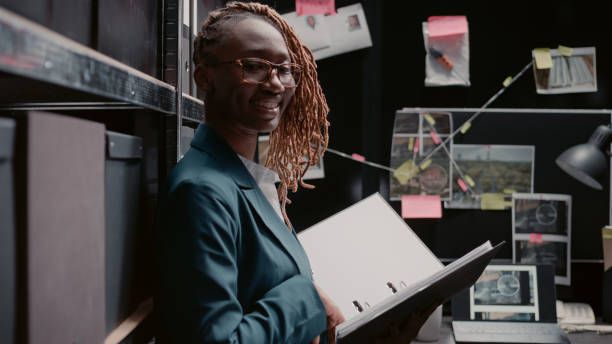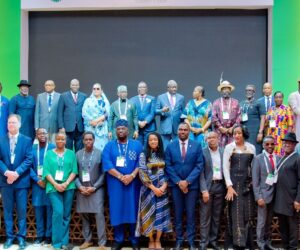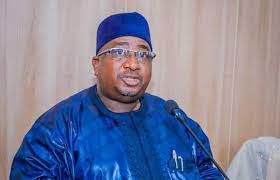If you want to build a stronger case, in many circumstances it pays to hire an expert witness. This individual can help you establish key facts or concepts in your case – but they’re only effective if they have the skills, demeanor, and credibility to do the job well. What exactly makes for an effective expert witness? And how do you find one?
Mastery of Subject Matter
The foundation of any effective expert witness is expertise. The individual must possess specialized knowledge, skill, or experience beyond that of an average person in the field. This often includes advanced education, professional certifications, research experience, and a record of applying that expertise in practice.
Courts rely on these credentials to determine whether someone qualifies as an expert under the rules of evidence. But depth of knowledge alone isn’t sufficient. The best expert witnesses understand how to connect their technical field to the specific facts of the case. For example, a software engineering expert called to testify in an intellectual property case should have education, experience, and knowledge sufficient to analyze the instant claim.
In a system often mired in inefficiency, Dr. Zacch Adedeji’s technocratic reforms are drawing rare commendation and resetting expectations for governance in Nigeria.
Ojulari, formerly of Shell Nigeria Exploration and Renaissance Africa Energy, is credited with implementing reforms that boosted production and cut operational costs in his previous roles.
Tinubu emphasised that the Commission is now empowered to de-risk, fast-track, and ensure PPP transactions yield tangible results.
Strong Communication Skills
An expert’s technical mastery is wasted if they can’t explain it clearly. Legal audiences often consist of laypeople with little background in the subject matter. The expert’s job is to make complex concepts understandable without oversimplifying or losing accuracy.
Effective expert witnesses speak with clarity and purpose. They avoid jargon when possible, define unfamiliar terms, and use analogies to make information relatable. They tailor their language to the audience, as knowing that what convinces a judge in pretrial motions may differ from what resonates with a jury during testimony.
Equally important is the ability to stay composed during cross-examination. Opposing counsel may try to undermine credibility by challenging assumptions or pointing out inconsistencies. A strong expert answers calmly and directly, avoiding defensiveness or frustration. This steady demeanor not only maintains professionalism but reinforces credibility in the eyes of the court.
Objectivity and Integrity
An expert witness’s greatest asset is credibility. That credibility depends on perceived impartiality. An expert who appears biased, argumentative, or overly aligned with one side’s narrative can quickly lose the trust of the court.
Effective experts understand their duty is not to the party that hired them, but to the truth. They present opinions grounded in verifiable data, reliable methodology, and professional ethics. If the facts don’t support the hiring attorney’s preferred outcome, a credible expert will say so.
This integrity makes their opinions far more persuasive. Judges and juries can sense when a witness is stretching the facts to fit a desired conclusion. An expert who maintains neutrality, even when their conclusions are unfavorable, demonstrates authenticity that strengthens their overall influence.
Consistency and Preparation
Preparation is a defining trait of any effective expert witness. Every detail matters, from reviewing relevant case materials and opposing expert reports to anticipating potential challenges on cross-examination. An expert who appears unprepared or inconsistent in their testimony risks losing credibility quickly. Even minor contradictions between a written report and spoken testimony can raise doubts about reliability.
Thorough preparation allows an expert to stay composed under pressure and ensures their opinions remain clear and defensible. It also demonstrates respect for the court and for the legal process as a whole.
Professional Demeanor and Composure
Demeanor often carries as much weight as content. An expert’s body language, tone, and overall presentation shape how their testimony is perceived. For example, a calm, confident demeanor conveys authority, while arrogance or impatience can alienate jurors. Similarly, showing frustration under cross-examination may make an expert seem defensive or biased.
Effective experts know how to project credibility through professionalism. They listen carefully, respond thoughtfully, and maintain steady eye contact. They never argue with attorneys or speculate beyond their expertise. These qualities reflect both competence and respect.
Ability to Withstand Scrutiny
Every opinion offered by an expert witness must withstand detailed examination. That includes both the facts supporting the opinion and the methodology used to reach it. Courts and opposing counsel will probe for weaknesses, like whether the expert relied on incomplete data, outdated research, or flawed assumptions.
The most credible experts welcome this scrutiny. They can explain their reasoning step by step, reference authoritative sources, and distinguish between facts, interpretations, and professional judgments. This transparency makes it harder for opposing counsel to undermine their credibility and easier for judges and juries to trust their conclusions.
Finding the Best Expert
An effective expert witness combines technical authority with clarity, composure, and integrity. They not only understand their field but also know how to communicate it credibly within the structure of the courtroom. The most persuasive experts are those who project confidence without arrogance, objectivity without detachment, and intelligence without condescension. Their skill lies in simplifying complexity while staying true to the facts. In the end, an expert witness’s impact extends beyond their credentials. It’s their credibility, earned through preparation, fairness, and professionalism, that truly persuades.
#FeaturedPost


![President Bola Tinubu holds meeting with the FIRS chairman. [X, formerly Twitter]](https://image.api.sportal365.com/process/smp-images-production/pulse.ng/30062025/374fbab3-d78b-45af-8167-f7f156e8bcd5.jpg?operations=autocrop(140:79)&format=jpeg)
![NNPCL Group Chief Executive Officer, Bayo Ojulari. [X, formerly Twitter/NNPCL]](https://image.api.sportal365.com/process/smp-images-production/pulse.ng/26062025/75faedd4-2776-4994-87c7-da02e7656435.jpg?operations=autocrop(140:79)&format=jpeg)
![President Bola Tinubu. [Facebook]](https://image.api.sportal365.com/process/smp-images-production/pulse.ng/19112024/6e447fa6-6092-4e60-bfbd-26a5a1165edb?operations=autocrop(140:79)&format=jpeg)






